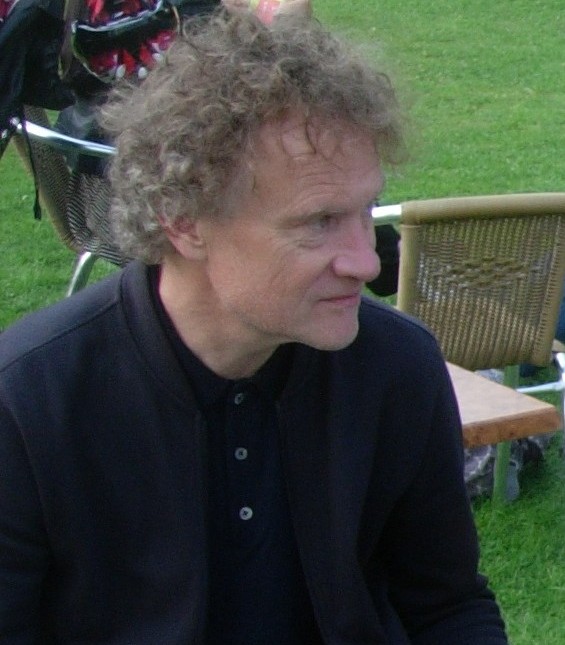Judges summary for 2015(click here for winning poems)  Adrian Blackledge It was both an honour and a pleasure to judge this year's 'Sonnet or Not' competition. The sole criterion for submission was that poems should be of fourteen lines. This meant that the 'sonnets' did not have to be conventional 'Petrarchan', 'Shakespearean', or 'Spenserean' in the formal sense of traditional rhyme, rhythm, or structure. Some of the finest 'sonnets' in English are the often unrhymed, fourteen-line poems of Robert Lowell. And if Lowell was the modern master of the sonnet in the Twentieth Century, Don Paterson is perhaps the post-modern sonneteer of the Twenty-First, with one of his recent 'sonnets' ('At the Perty') extending to no more than fifteen words over fourteen lines.
So when I came to read the fourteen-line poems submitted for the competition I was less concerned with formal convention than with voice. The three prize-winning poems exemplify the power of voice in poetry. There was little to choose between these three excellent poems. Very different from one another, each of them tells a story. If each of the narratives is of the past, the poems are successful because their voice, and their perspective, is contemporary. That is, the poems belong to today, while evoking worlds of another age.
The third-placed poem, 'After Life (after Elizabeth Dayrush - Still-Life)' is both a response and a sequel to a poem from 1936 by Elizabeth Dayrush, daughter of the Poet Laureate Robert Bridges. The 'open window' of the original poem is 'closed now', and the 'warm sun' of the Dayrush poem 'sulks behind cloud'. The 1936 sonnet creates a scene in which an affluent young woman arrives at the breakfast table, where the morning post waits to be opened. The new poem revisits the same scene a month later, and encounters the 'crumpled letter that she left behind'. The quality of the poem is in the detail: 'butter in ice' in the earlier poem becomes 'Rancid butter' now, and there is 'a bloom / of mould on what was once a peach'. The voice of the new poem cleverly echoes the voice of the original, capturing its tone. Do we need to have read the Elizabeth Dayrush poem to appreciate the new poem? My answer is no. The Dayrush poem can be taken as a starting-point rather than a pre-requisite, and the contemporary poem stands perfectly well on its own feet.
The second-placed poem, 'At the Kitchen Sink. i.m. of R.H. 1961-1986' also paints a domestic scene, this time apparently at a different point in the social scale. At first sight the poem is no more than a description of a woman washing vegetables in the kitchen. The simplicity and directness of the language are painterly, or even filmic: 'The water's green-grey / always the colour of mussel-shells'. Apart from the accuracy of the comparison, 'always' implies a life of inevitable and ongoing domesticity. Her hands are 'pink' from scrubbing potatoes in the sink. The poem is divided into a sestet and an octet, and it is in the second stanza that we become aware of a loss. At this point the epigraph to the poem, 'i.m. of R.H. 1961-1986' assumes greater significance. The poem appears to refer to a mother's early loss of a son. She 'used to bathe him' where today she scrubs vegetables, and 'soaped him until he shone'. Now 'her hands find / only peelings'. The simplicity of the voice of the poem is its strength. It is at one remove from the tragedy of the narrative, yet close enough to present the scene vividly and with controlled emotion.
The poem placed first, 'Nearly Whitsun Sonnet c 1950' also tells a story set in the past. In this poem the scene is vividly created through first person narrative in regional dialect, a form which is notoriously difficult to handle in poetry or, for that matter, prose. D.H. Lawrence was partially successful, as was Emily Bronte. In modern times W.N. Herbert, Liz Lochead and others have written outstanding poems in Scots. Poets such as Michael Smith, Linton Kwesi Johnson, Edward Kamau Brathwaite, to name but a few, have transformed the poetry landscape with their poems in Caribbean nation languages. So the winning poem in the 2015 'Sonnet or Not' competition is situated in an established tradition, while at the same time speaking with a highly original voice. There are three, or perhaps four, voices in the poem: the voice of the first-person narrator, who is also a character in the action: 'e brushed osses dahn'; then the voice of Dad: 'off yer gu! Goo on, Prince, Goo on, Blackie'; and the voice of Granddad: 'It's not a tumbril, sergeant'. The fourth 'voice' is perhaps that of the poet, slightly (if only slightly) at a distance from the action, creating three characters and their voices to evoke a scene, and a story, set in a particular time and place which are indexed by both the dialect, and by words such as 'procession', 'ribbons', and 'cart'. The poem creates its world through its voices, taking risks with the evocation of sound: words such as 'rahnd', 'osses', 'dahn', 'alias', and others are unfamilia |